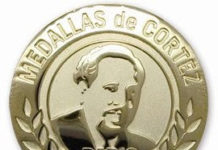Given the news that the Media Rating Council (MRC) that it has withdrawn accreditation of the monthly AQH radio ratings data produced by the PPM service in Cleveland, Portland OR, Riverside-San Bernardino, Salt Lake City-Ogden-Provo, and Tampa-St. Petersburg-Clearwater, we revisited an interview with MRC Executive Director and CEO George Ivie as to issues surrounding accreditation in PPM markets.
First of all, it’s a complex thing to accredit a new service and Arbitron has adjusted the service to meet the compliance needs of the MRC. That takes time and is always under review.
“One of the fundamental issues is this is a panel-based measurement,” explains Ivie. “So you go out and you install a bunch of people with these PPM devices and they carry it. The things that happen in the panel–you’re ultimately talking about humans doing things. And when you need to make changes, you want to correct behavior and do things like that, it gets ultimately very difficult. Because you’re going out to large numbers of people that you’ve recruited and you’re trying to adjust their habits – making them carry the meter better, or recruiting more ethnic people, or whatever. And then when markets get in what we think is adequate shape we accredit them.”
There are easier markets and there are harder markets to accredit, explains Ivie: “You’ve got large, racially complex, diverse markets that are harder to bring into line in that process than other markets…You think about New York. You have access-controlled buildings. The diversity of the population. Just the attitude of the people. I’m not saying that New Yorkers aren’t nice – I live in New York – but, you know, maybe they’re a little bit reticent to answer their door sometimes. And then compare that to a Charlotte – the lifestyle and dynamics are totally different and that can make research more difficult. You see markets that are more difficult than others to make this panel thing work.”
When Arbitron moved from diary to PPM they really increased the level of complexity – about how people cooperate, the longitudinal nature of the cooperation, the sensitivity of the measurement to racial and ethnic difficulties that you might be having to get cooperation, explained Ivie.
RBR-TVBR observation: Often in these situations it’s the sample size, or lack thereof of certain demos that get accreditation pulled. As radio becomes less relevant to the general public, the ability to get people to participate and follow the PPM rules, so to speak, becomes more difficult. And that can vary by market, as Ivie noted.




